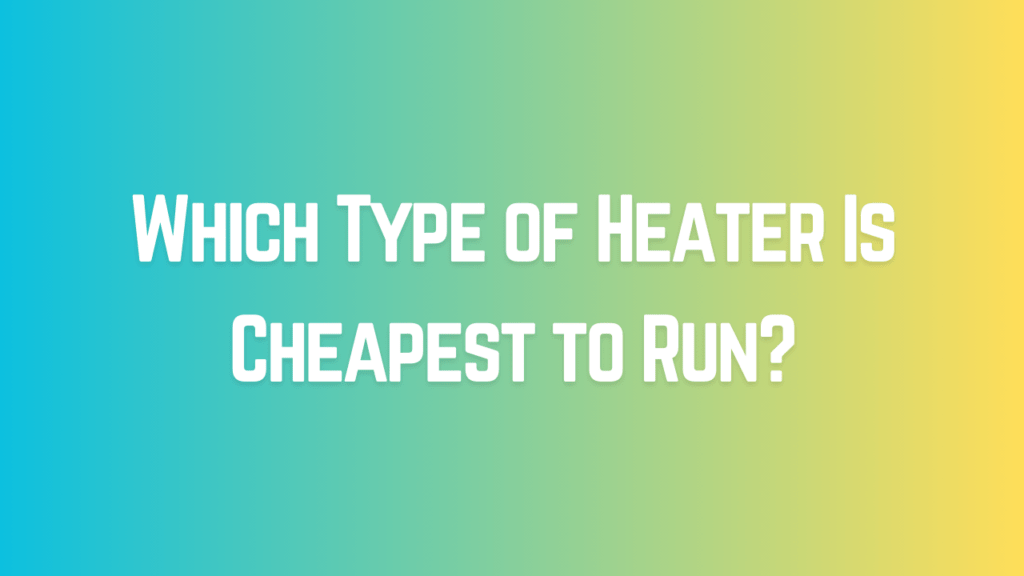
When it comes to heating your home, the cost of running different types of heaters can vary significantly. Understanding which type of heater is the cheapest to run depends on several factors, including your specific heating needs, energy prices in your area, and the efficiency of the heater. Let’s delve into the various types of heaters and their cost-effectiveness:
Which Type of Heater Is Cheapest to Run?
The cheapest type of heater depends on various factors, including location and energy source. Electric heaters are often more expensive to run than gas heaters due to the higher cost of electricity. However, efficient electric heaters might be cost-effective for some individuals in areas with low electricity rates.
It’s crucial to consider your specific circumstances and energy costs when determining the most economical heater for your needs.
Electric Heaters
Convection Heaters: These heaters warm the air in a room. While they are easy to use and relatively inexpensive to purchase, they tend to be less energy-efficient and can be costly to run in the long term.
Infrared Heaters: Infrared heaters heat objects and people directly, providing quick warmth. They can be more energy-efficient than convection heaters but are generally more expensive than other options.
Gas Heaters
Natural Gas Heaters: If you can access natural gas, this can be one of the most cost-effective heating options. Natural gas tends to be cheaper than electricity, and modern gas heaters are highly efficient.
Propane Heaters: Propane heaters are another option if natural gas is unavailable. While propane can be more expensive than natural gas, these heaters can still be cost-effective, especially in well-insulated homes.
Heat Pumps
Air Source Heat Pumps: These systems use electricity but are highly energy-efficient. They transfer heat from the outdoor air to heat your home, making them more cost-effective than traditional electric heaters.
Ground Source Heat Pumps (Geothermal): Although they have a higher upfront cost, geothermal heat pumps are extremely efficient and can significantly reduce heating costs over time.
Wood and Pellet Stoves
Wood Stoves: If you have access to a free or inexpensive source of firewood, a wood stove can be a cost-effective way to heat your home. However, they require effort in terms of wood gathering and maintenance.
Pellet Stoves: These stoves burn compressed wood pellets and are more convenient than traditional wood stoves. They can be cost-effective if you have a local and affordable source of pellets.
Solar Heating
Solar Panels with Heating Systems: Solar heating systems harness energy from the sun to heat your home. While they have a high initial cost, they can be extremely cheap to run once installed.
Conclusion
The cheapest heater to run depends on your circumstances. Natural gas heaters, air source heat pumps, and solar heating systems are often among the most cost-effective options in the long run. However, it’s essential to consider factors like installation costs, energy efficiency, and the availability of energy sources in your area. To get a more precise assessment of the most cost-effective heating solution for your home, it’s advisable to consult with a heating professional who can provide personalized recommendations based on your specific needs and location.
